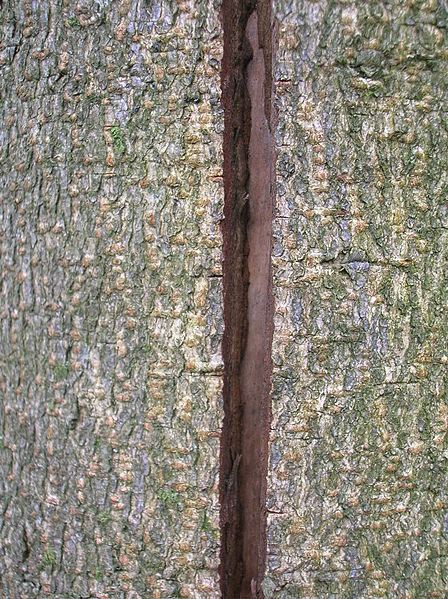
Temperatures are certainly chilly this week, aren’t they? With our Northwest temperatures dipping down into the 20s, we’ve had a few calls about damage to trees whether it’s ornamental or simply mature evergreens on a property.
Winter is certainly coming and these freezing temperatures can cause damage on evergreens and ornamentals regardless of sunshine or windy, cloudy days. Many plants like rhododendrons are susceptible to loss of moisture through their leaves and if they cannot get the moisture they need when the ground freezes, it can damage the roots and leaf system. The same can be true for small to larger trees.
We talked about sunscald before but maybe not frost cracks. Frost cracks are vertical cracks in the trunk of a tree. On bright, sunny days in the winter, the bark can warm up, which cause the cells to expand in the bark and once the sun goes away, the temperature drops too quickly, causing the bark to cool and crack. The wood underneath the bark doesn’t necessarily cool as fast and this causes the bark to split.
Frost cracks may first appear on young trees that have not developed a thick layer of bark, so it’s important to protect your trees from this type of winter damage. Injured trees can be split back open even after repair on cold days but in other trees, the wound may never fully heal and it could create the perfect environment for decay, disease, and pests.
Protecting trees from all types of weather damage can be difficult since we have such great extremes and light conditions in the Northwest. If you have sinned bark to trees out in the open without protection from other trees, they can be susceptible to frost cracks and sunscald. Lightly colored tree wraps can be used in the winter to reflect the sunshine back off of the bark and reduce the warming of the cells and prevent potential damage. These trunk raps are only necessary on young trees as most larger trees have protected themselves with a thick layer of bark.
If you have trees on your property that may be of concern, give us a call. We’d love to discuss your issues over the phone and maybe provide some clarification on how to protect your trees. Of course, if you have trees that need to be removed because they might be a hazard, windy, wintry days, would be happy to offer some quotes and suggestions on a proper tree removal.
